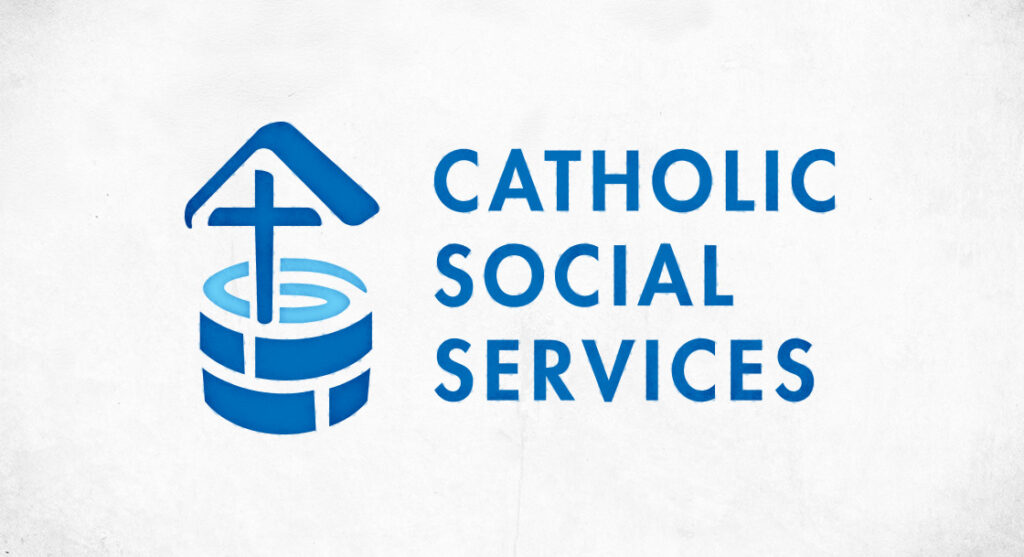The Lurana Shelter for women and children fleeing domestic violence has received its own lifeline from Catholic Social Services, which will take over its administration and stave off any threat of potential closure.
“This was a real answer to prayer. For me, I just think our foundress must be smiling from heaven at what is unfolding,” said Sister Lucinda Patterson, board chair of the shelter founded by the Franciscan Sisters of the Atonement and named after the congregation’s founder, Lurana White.
“It was very important to our congregation, and always incredibly important to us, is our Catholic values and ideals,” Sister Patterson said. “To me the Holy Spirit was moving to make this a possibility. I really have a great deal of respect for CSS.”
The Edmonton shelter will become a part of CSS in April, a decision two years in the making and approved unanimously by both organizations. Under the new arrangement, CSS will become one the largest providers of services for abused women and children in Edmonton – and perhaps in the province.
“It feels like to us in CSS that it’s a match made in heaven,” said Eoin Murray, director of development and community relations. “The Lurana Shelter has an excellent reputation … They’re having a real impact on changing women’s lives, which is ultimately what we’re both about.
“We will be able to offer women a continuum of care,” Murray added. “Women from the minute they are in an emergency situation all the way to a brand new life are going to be cared for by CSS. And I think that’s really amazing. We’re going to watch women as they move from a dangerous place to a new place of safety. They’ll be able to get a job, they’ll be able to support their kids getting a proper education and being in a loving environment.”
After April, the first contact for abused women and children will continue to be the Lurana Shelter, which is a first-stage, emergency shelter.
Murray said CSS can also offer them a link with La Salle Shelter, a second-stage shelter founded by the Grey Nuns, which helps women take the next steps in the journey toward a stable life without violence. And Katharine Drexel Place helps women find long-term living solutions. Mercy Counselling, and other CSS services, can provide additional help.
“There’s such a gap in the service provision in the city of Edmonton anyway that even if it was a duplication, we still wouldn’t be able to meet the need,” Murray said.
He hopes that supporters of Lurana Shelter will continue to contribute, and noted that they can make a designated donation to the shelter through the CSS Sign of Hope Campaign.
The transition also means the Lurana Shelter will continue to stay open. The Franciscan Sisters have operated the Lurana Shelter since it began 27 years ago, but the sisters are getting older.
“Unfortunately for the sisters, we’re getting fewer and fewer, so this was a real answer to prayer that Catholic Social Services is going to administer the programs,” Sister Patterson said.
The alternative? “We would have had to close the program,” she said. “It definitely is a lifeline. It’s a lifeline for Albertans who are needing this unique support if they are living in domestic violence.”
Alberta has the third highest level of domestic abuse within Canada, according to Statistics Canada.
The need outstrips the number of shelters. Last year, 6,244 women and children were turned away from Edmonton’s three emergency domestic abuse shelters, according to the Alberta Council of Women’s Shelters. In Calgary, 7,152 women and children could not find shelter.
As a first-stage facility, Lurana serves women and children arriving immediately from domestic violence situations. Sister Patterson said first-stage shelters have been described as the “domestic violence homicide prevention centres.”
Lurana Shelter serves an estimated 500 to 570 women and children every year. Under COVID-19 restrictions, the shelter can safely house three families and two single women – a change from the 32 women and children the shelter could accommodate before the pandemic.
“I wish we would do our jobs so well that we go out of business,” Sister Patterson said. “Unfortunately I have enough people telling me ‘Keep dreaming, but you’re not going to see it happen.’”
Clients of the Lurana Shelter are not expected to be impacted by the transition. Until April, CSS will be assessing the needs of the shelter. Patterson hopes its programs and 37 staff will continue.
“CSS knows what they’re really good at and they’re going to make sure to not take on anything more than is necessary,” she said. “It’s very easy, especially in the field of domestic violence, for entities to overextend. I think it’s going to be a nice fit and a good transition.”
Sister Patterson said it’s the second big change in the history of the Lurana Shelter, which was originally run by the Franciscan Sisters Benevolent Society. In 2007, the Lurana Shelter Society took over.
Sister Patterson herself is a former director of the Lurana Shelter.
“You never have to be worried that I will be shocked by anything because I did it myself for 17 years. I’m very aware that, when it comes to humans, always expect the unexpected.”
As a congregation, the Franciscan Sisters of the Atonement is in an “in-between mode” with the sisters aging, and younger women in formation but five to 10 years away from having enough experience for specific ministries, Sister Patterson said. COVID-19 travel restrictions have made that delay even longer.

